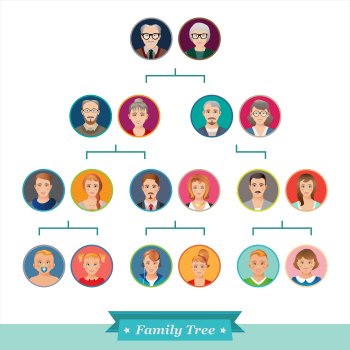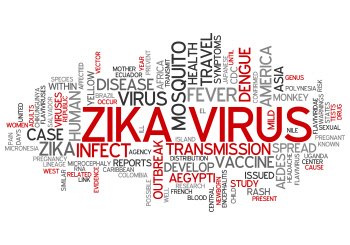# Are you ready for “pregnancy?” 10 weeks prior to pregnancy

33-year-old wife and 30-year-old gynecologist husband
• This is “FACTION,” “FICTION” combined with “FACTS” based on childbirth experience.
• Most of the contents are based on OBGY textbooks.
• As medical knowledge continuously change, please use this article as a reference and consult your physician for important decisions.
• All mothers require medical treatment customized to each individual.
• I hope this can answer some of your questions.





I think the most important aspect of preparing for pregnancy is the decision of the couple.
More and more delayed employment age, tough social atmosphere, parenting leading to career discontinuity, support from mother and mother-in-law who can provide care on behalf of “moms” after childbirth. I think issues like these after giving birth are the most necessary things for couples preparing for pregnancy. For “moms who have bravely decided to get pregnancy,” here are some short medical knowledges. I hope they could be helpful to you.
Because most women in the early 30s aren’t suffering from any diseases, many of them don’t visit the hospital in advance. That’s why many women preparing pregnancy find out about their pregnancy after 1 to 2-week delay of their menstruation.
Prior to preparation

Prior to preparing a foolproof and perfect pregnancy, couples should take the time to learn about their current health. And by providing the doctor with the information you have found out, you can receive a more appropriate treatment.
- How old are you? Older than 35?
- How many babies do you want to have?
- What kind of diseases do you have?: Hypertension, diabetes, convulsions, etc.
- What kind of medication do you take?
- Do you smoke or drink?
- Does anyone in your family have a genetic disorder? : Phenylketonuria, NTD, Thalassemia
- Have my husband and I recently been to regions associated with Zika virus infections?: Including many countries such as Maldives, Republic of the Philippines, Singapore, Thailand, Viet Nam and Fiji
Women, as of age 35, are known to have a dramatic increased risk of Down's syndrome and an increased risk of complications in older mothers. Although the age of the husband has relatively less impact on anomaly and deformity, it is known there is a higher possibility of chromosomal disorder with older age of men. Deciding how many children you are expecting and how far apart you are going to have them in advance can be helpful.
The presence of hypertension, diabetes before getting pregnancy are associated with gestational hypertension, preeclamsia, and premature birth, so it is important to be aware of your condition well. These medications can cause abnormalities in the baby, so be aware in advance. If you are taking medications for convulsions, it is recommended that you consult your doctor on whether you should continue the medication. Because such medicine may cause anomaly or birth defects, you should be aware of them in advance.

Checking your husband’s and your family history can also be a big help in preparation for pregnancy. If there is a family history, you must consult your doctor, and for serious genetic disorders, you may require amniotic fluid test, prenatal genetic screening test, etc.

The last topic I’ll be discussing is Zika virus. Since babies can develop microcephaly if moms are infected with the virus, which has been prevalent since 2016, we recommend that they postpone their pregnancy for six months after visiting the country.

After taking the time to learn about yourselves, I recommend visiting your doctors. Not because you’re sick, but for a healthier pregnancy.
When you visit OBGYN clinic for prenatal tests, you have to take various different tests depending on the hospital. The tests can be taken during early pregnancy after confirming your pregnancy and some of the tests can even be taken at health centers.
- Height, body weight, blood pressure
- Blood test (general blood test, renal function test, liver function test, blood type test, rubella test, hepatitis test (antigen, antibody), syphilis test, HIV test)
- Urine test
- Cervical cancer screening
- Ultrasound, etc.
Healthy women can be reluctant to visit clinics, but I would like to wrap up today by saying "please be a smart “mom” and prepare for a healthy pregnancy by visiting in advance."
I will try to write more interesting and informative stories.
This was the @ forhappywomen who wanted every woman to be happy and healthy.
Note
Neural tube defect (NTD)
0.9 babies out of 1000 are diagnosed and it is the second highest structural anomaly of fetus after congenital heart disease. Like congenital heart diseases, some NTDs are known to be associated with specific mutations. As a preventive measure, the US Preventive Services Task Force recommended daily consumption of 400-800ug of folic acid prior to pregnancy in 2009.
Folic acid
It is rich in fruits and a type of vitamin. The folic acid is important in the development of fetus’ blood vessels and nerves.
Zika virus
It is transmitted by Aedes (type of mosquito). In 2014, Zika virus crossed the Pacific and broke out in French Polynesia and in Easter Island. Then in 2015, it broke out in Central America, Caribbean Sea, and South America. With such outbreaks, Zika virus reached a pandemic level. Currently, Zika virus is considered to be associated with the microcephaly in newborns given birth by mothers infected with the Zika virus.
Body mass index (BMI)
It is a numerical value of weight expressed based on objective index by using height and weight: weight (kg)/(height (m) x height (m))


The first STEEM medical magazine written by professionals
https://mediteam.us
Good thing shared ..upvoted it..A couple should get prepared both mentally and physically for pregnancy ..And should maintain good diet as it's necessary for baby's proper growth ...And mother should be aware of drugs taken as many of the drug has got teratogenic effects .
Well written